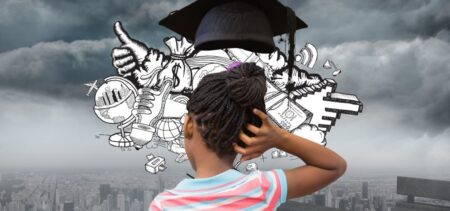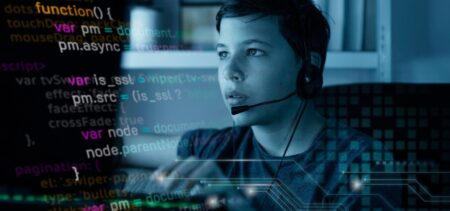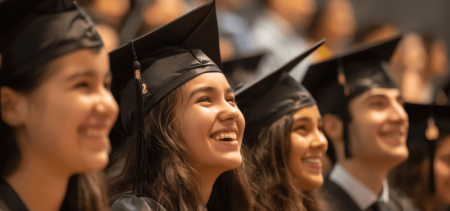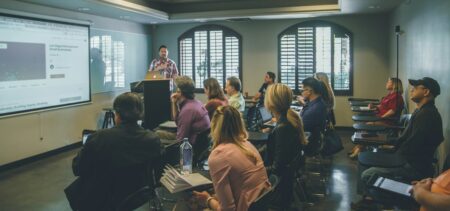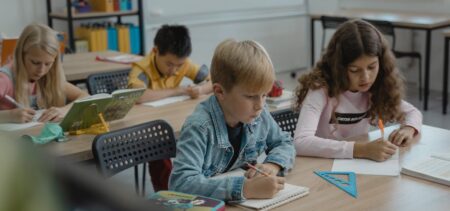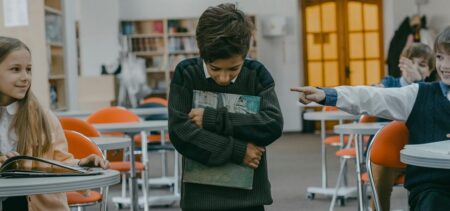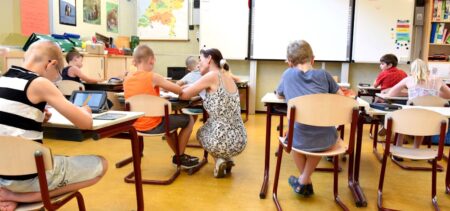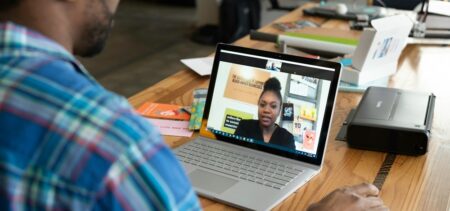The common use of digital technology has changed entire sectors of the American society. Companies like Google, Apple and Amazon have revolutionized the way people work, talk and shop. Online and social media platforms have provided billions of people worldwide with the ability to share ideas with just a few clicks. These improvements are remarkable, but they have already become a part of our daily lives. As the digital age moves forward, new devices and technologies are now transforming the way students learn. This digital education paradigm is usually called “virtual learning” and it might change education as we know it.
Virtual learning may have the power to improve the student experience and provide better educational access at lower costs. As the new model uses devices, software, and the Internet to deliver lessons to students, tutors and pupils can be physically separated without losing precious information or interaction along the way. This changes the way students learn, alters the content they acquire and the way they learn to learn. But it also grants more and more students access to better education and it gives them the opportunity to study at their own pace.
Stories from around the world
As a member of the minority Bahá’í community, Holakou BIHE was not allowed to study at a university in Iran, but virtual learning soon proved to be an opportunity for higher education. The Bahá’í Institute of Higher Education (BIHE) has provided Bahá’í students with access to education since 1987 and it does so in rather unconventional ways. BIHE operates mostly via the Internet, using emails and Internet protocols to hide virtual learning from government monitors, as challenging the laws of Iran is more than dangerous for the Bahá’í. But education was a must for Rahmanian and he followed the only path possible to get a degree in computer science.
“Six years ago, when I entered the USA as a refugee, I never imagined that someday I would be standing in front of you,” he stated at his graduation from the University of Santa Cruz, California. Following his studies at the BIHE, he immigrated to Turkey and later to the US to complete his education. He recently received his Ph.D. and plans to join Microsoft soon. But he also plans to teach at the BIHE, as his dream could not have been realized without the unique university that adopted virtual learning and used it to provide access to higher education.
Where dreams and needs meet
The BIHE project started as a response to the government’s discrimination against the Bahá’í community. It involved distance learning and clandestine meetings. But it soon became clear that it was easier and safer for the courses to be conducted in an online environment by means of electronic study content. In 2007, a physical campus was constructed in a rented office space in Tehran, but threats from the government soon started to appear. The members of the university were forced to empty the building and the institute lost all hope for a physical campus.
Even so, the BIHE was the only option for Rahmanian and other members of the Bahá’í community. And he was soon to be amazed to find that many universities from the United States took in BIHE students for their graduate programs. His obscure degree might have meant very little in Iran, but the world was awaiting the young and bright who embraced virtual learning. After all, this was a new and effective way of reaching the needs of all students through digital technology.
Students from all over the world are now using online learning courses to earn college degrees or certifications for their jobs, but for some of them, there’s simply no other choice. As e-learning seems to thrive even in the most hostile conditions, it offers new opportunities for those who seek access to education. And the benefits of virtual learning can even be found closer to home, like remote access to various educational services, a safe learning environment and flexibility are worldwide advantages. Virtual learning might give more and more students access to better education at a lower cost and it may also alter our ideas about education in the process.














